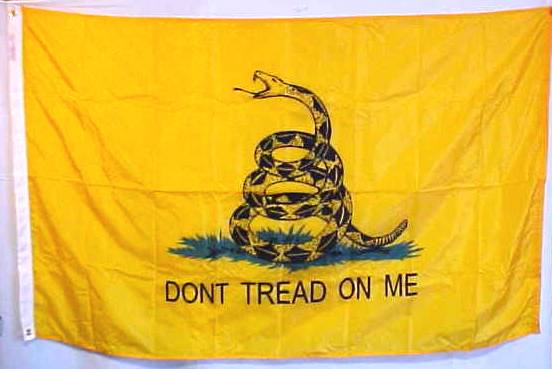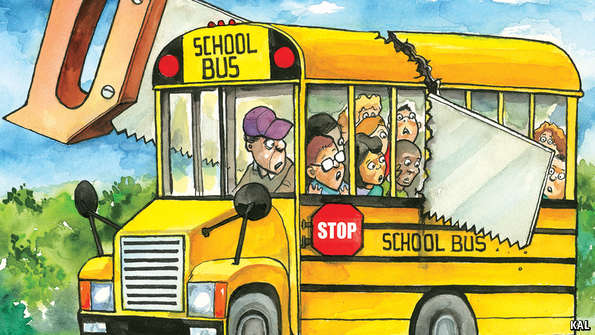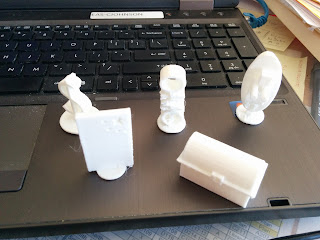In this age of intense testing, I've so often thought of the line uttered over and over again in
The Wire about "juking the stats" (don't worry, this
clip is safe). NPR today ran a story that articulated wonderfully many of the frustrations I have wrestled with over the past decade or so. I encourage you to read or listen to their
piece. In it, the dig into some of the less attractive trends at work behind the ever-climbing rate at which high schoolers are graduating.
Perhaps this journalism is evidence that the tide of popular opinion regarding standardized testing is starting to turn. Are we more broadly coming to question the costs of the testing culture that has gripped U.S. schools? Are we starting to see that data doesn't tell the whole story of educating children? Journalism like this, and the small bits of furor opening up here and there over
opting out of state tests are enough to suggest that, yes, maybe the data-driven emphasis on tests is starting to wane in power.
I teach at a school that, four years ago, graduated its first ever class with a perfect graduation rate. At the time it seemed like an accomplishment. Many kids and even more adults worked hard to make that possible. I was one of those adults (that happened to be a year in which my schedule was exclusively teaching seniors). But over the next few years, that accomplishment turned into an expectation. Now, it may as well be an entitlement.
At the time, in the spring of 2011, I overlooked a realization that I've come to appreciate: to expect 100% of adolescents to do
anything is naive and counterproductive. They're adolescents. Adolescence is messy.
 |
| But sometimes in that messiness, they're ridiculously clear-headed. What one student learned by trying to balance the U.S. budget. |
It's a time of overlapping and conflicting priorities. It's a time of great change and a growing ability to handle that change. By the way, a growing ability to handle change implies that there is varying
inability to handle change.

 |
| There's a fascinating parable in here about steel quotas and Stalin's Five-Year Plans that I cannot help but think when I contemplate the uglier aspects of today's testing culture. |
Attainment of an unrealistic goal encourages unethical behavior. Attainment of an unrealistic goal creates fertile ground for perverse incentives. Attainment of an unrealistic goal can stunt individualism.
But I don't think unethical behavior is typical in my profession. I work as part of an army of people who genuinely care for kids. Caring for kids can unintentionally lead us to do things that stunt their growth.
In some ways the problems NPR points out resemble concerns people have about the "everybody-wins-a-trophy" mentality that some say persist with sports and other competitions. I don't necessarily think that such an impulse is at play here. The desire to award everybody is driven by care for a child's feelings. This push toward 100% graduation is motivated by a desire to set kids up for success.
That doesn't mean it's right.
A fundamental principle of working with kids is to provide options. Don't make ultimatums. Offer an option A and option B. Help highlight the pros and cons of each. Sell A over B. But ultimately let the kid choose. And be as comfortable as possible when their choice disappoints.
In today's culture, I've seen the adults - teachers, administrators, boards, parents - take the kids right to choose away. A few years ago it was a movement that the students must pass a given test. That's only gotten louder. That sentiment has morphed into every student must graduate.
And the day we say
must is the day the adults own the problem. And in owning the problem, we rob the kids of a chance to choose their path.
I love working with kids. It's hard for me to imagine leaving the classroom despite being there 17 years. On a daily basis I work with very interesting adults-in-training. They might not surprise me daily, but they do surprise me weekly. For instance, I can't wait to see the finished product of the Macroeconomic chess set a group of my colleagues' students are making with a 3D printer.
I'm hopeful that tomorrow another kid will impress me the way a shy 10th grade girl did in delivering a solid presentation on a harder-than-seems topic. And I say this despite the fact that behaviors today disappointed me (it's June 10 . . . a week of school remains, shenanigans were abundant today . . . 1:00 to 1:10 was a variety show of obnoxious acts).
A variety show of obnoxious acts? Too harsh. No, I'm just working with adolescents. And I love doing so. And I want to continue working with them in such a way that we can help them grow, not keep them as kids.






























.jpg)











